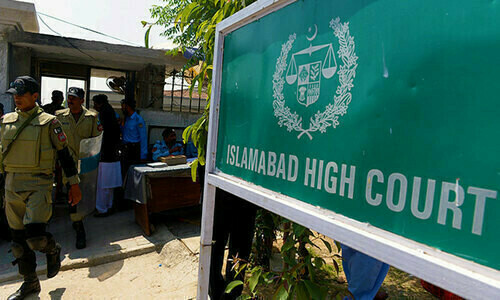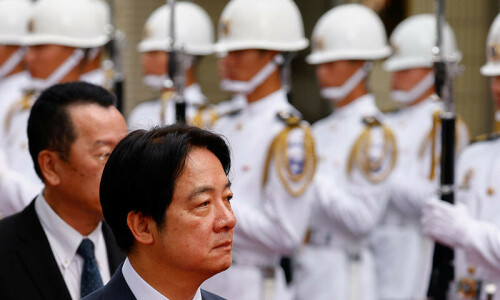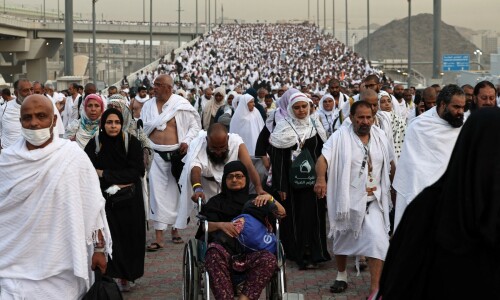ISLAMABAD, Dec 26: The Technical Committee on Water Resources (TCWR) has failed to reach a consensus on major irrigation issues, including construction of future dams and their sequencing, total water availability and filling criteria of dams.
“I apologize that a consensus could not be reached in the preparation of this report,” wrote TCWR’s Chairman A.N.G. Abbasi when he submitted the final report to President Gen Pervez Musharraf and Prime Minister Shaukat Aziz in August this year. The committee would stand dissolved on Dec 31. The report was exclusively provided to Dawn by sources in the water and power ministry.
The committee asked the government to immediately start proceedings for signing of a water treaty with Afghanistan to protect Pakistan’s lower riparian rights as many international agencies were helping Afghanistan to construct dams on rivers flowing into Pakistan.
The nine-member committee seemed clearly divided over most of the issues. Seven members of the committee, comprising six members from Punjab, the NWFP and Balochistan and Dr Iqbal Ali from Sindh, adopted more or less a uniform set of arguments.
TCWR’s Chairman A.N.G. Abbasi and Sindh member Sardar Ahmad Mughal have taken a different stand on most of the issues, including computations about water availability, its utilisation by the provinces and future dams.
The group of seven members has adopted a Wapda estimate that Afghanistan could not use more than 500,000 acre feet of its water from rivers coming into Pakistan, while the chairman and Sindh member Sardar Ahmad Mughal questioned the estimate. Mr Mughal estimated that Afghanistan could use up to four million acre feet of water from Kabul river.
Similarly, the group of seven has estimated that India could be restricted to use only two MAF of western rivers for developing their remaining area. The chairman of the TCWR has termed it unrealistic and refered to presentation of Pakistan Commissioner for Indus Waters that listed violations by India of even the Indus Waters Treaty of 1960. By comparison, Sardar Mughal has put the figure at 4.8 MAF.
Notwithstanding, the difference of opinion among the members of the committee, most of them were unanimous about protecting the existing provincial water uses. The report presented a classic example of diverging views among the country’s irrigation experts and engineers on irrigation issues, including construction of future dams but could be used as one of the best reference books to understand water issues in the country.
The TCWR chairman also documented hurdles many quarters tried to create in preparation of the report that led to his tendering his resignation twice in the process. It is interesting to note that many members tried to persuade the chairman TCWR to present “a one-page report” in the very beginning of the proceedings of the report.













































Dear visitor, the comments section is undergoing an overhaul and will return soon.